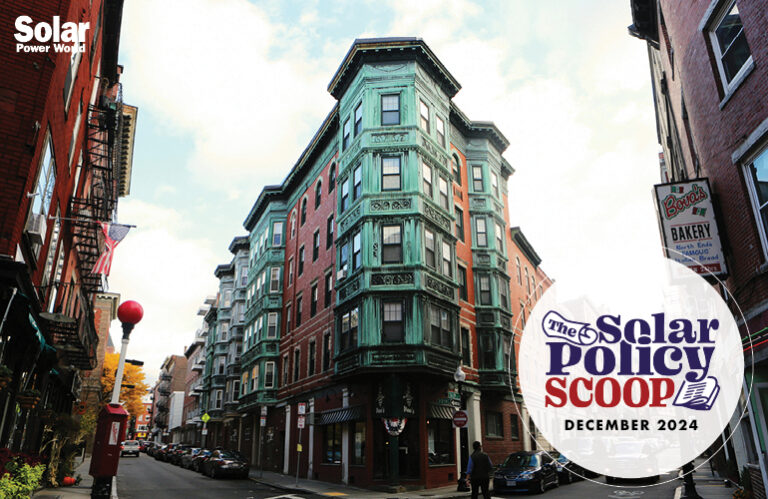
In November, an omnibus climate bill was signed into law by the governor of Massachusetts.
The Massachusetts Legislature passes a new climate law that includes business locations, allowing for reforms
Boston, MA
Massachusetts Governor Maura Healey signed a new climate law in November that prioritizes clean energy siting and permitting, clean energy purchasing and net credits for community solar. The bill was a second attempt after the failed implementation of major climate reforms months earlier.
Maryland will soon require contractor applications for a new Solar Access Program
Annapolis, Maryland
Maryland will soon launch its successor to the Residential Clean Energy Rebate Program, called the Maryland Solar Access Program. The Maryland Energy Administration will require solar contractors to apply for inclusion on the list of participating contractors.
Maryland’s grant program will help minority- and veteran-owned businesses go solar
Annapolis, Maryland
The Maryland Energy Administration has opened the new Commercial Solar Grant Program for fiscal year 2025 (FY25), which provides significant incentives to Maryland businesses and organizations to help pay for the costs of solar energy systems. The MEA will prioritize projects that serve low- to moderate-income and underserved communities.
Puerto Rico’s coalition is speaking out to protect net metering from regulatory attacks
San Juan, Puerto Rico
A coalition of 28 organizations, including national and Puerto Rican nonprofits and solar and battery companies, filed a Friend of the Court brief in federal court opposing the Financial Oversight and Management Board for Puerto Rico ( FOMB). The coalition argues that FOMB’s legal attack on net metering threatens the island’s progress in solar energy and resiliency.
CBP continues to detain Maxeon solar panels assembled in Mexico at the US border
Washington, DC
Maxeon Solar provided an update on its solar panels that have been held at the US border by Customs & Border Protection (CBP) for months. Although the company says it has “completely and transparently mapped its supply chains” and has no documented link to forced labor in China, CBP continues to hold Maxeon panels sourced from its assembly plants in Mexico.
The production of solar wafers is eligible for 25% CHIPS ITC
Washington, DC
The final rules for the 48D Advanced Manufacturing Investment Credit (CHIPS ITC) stated that the production of silicon ingots and wafers for the solar industry is eligible for the credit. The law is intended to support the general semiconductor market, but solar energy production can also make money.
ITC is quick to ignore Commerce’s aluminum extrusion tariffs
Washington, DC
Recently imposed trade tariffs on aluminum extrusion imports were reversed by the U.S. International Trade Commission about a month later. Although the Commerce Department found that 14 countries dumped and/or received foreign government support to produce cheaper aluminum extrusions, a majority of the ITC determined that the U.S. market was not harmed by those countries.
The final direct payment IRA rules allow co-owned solar projects to receive benefits
Washington, DC
The U.S. Treasury Department and the IRS have released final regulations for the direct wage provisions in the Inflation Reduction Act, which will give entities that co-own clean energy projects access to tax credits. The new guidelines are a boon for institutions such as tax-exempt entities that invest in a clean energy project with a for-profit developer.
Congress begins a process to block the 45x advanced manufacturing tax credit
Washington, DC
After the general election, two new members of Congress put their names to legislation that would prevent Chinese companies from accessing credits available in the Inflation Reduction Act. U.S. Reps. John Moolenaar (R-MI) and Jared Golden (D-ME) introduced bipartisan legislation to implement the Treasury Department’s final rules on Sec. 45X Advanced Manufacturing Credits.
Public Power NY Urges Leaders for 15 GW of New Renewable Energy
Albany, New York
More than 200 New Yorkers called on Governor Kathy Hochul and the New York Power Authority (NYPA) to build 15 GW of renewable energy during a rally and public hearing in November. Its proponents believe that NYPA should fully decarbonize public schools by establishing large-scale and distributed generation on state and city university campuses and K-12 schools.


